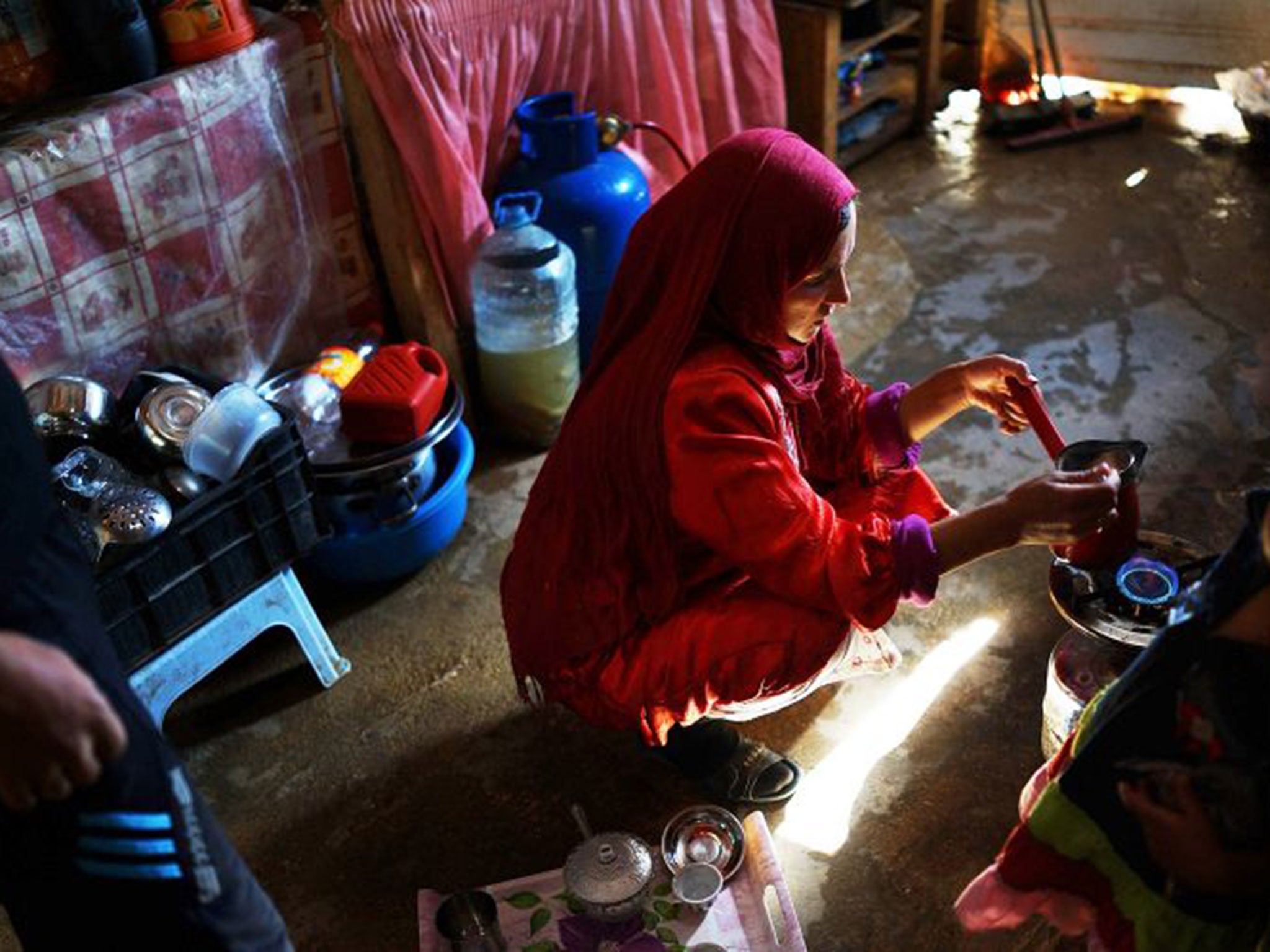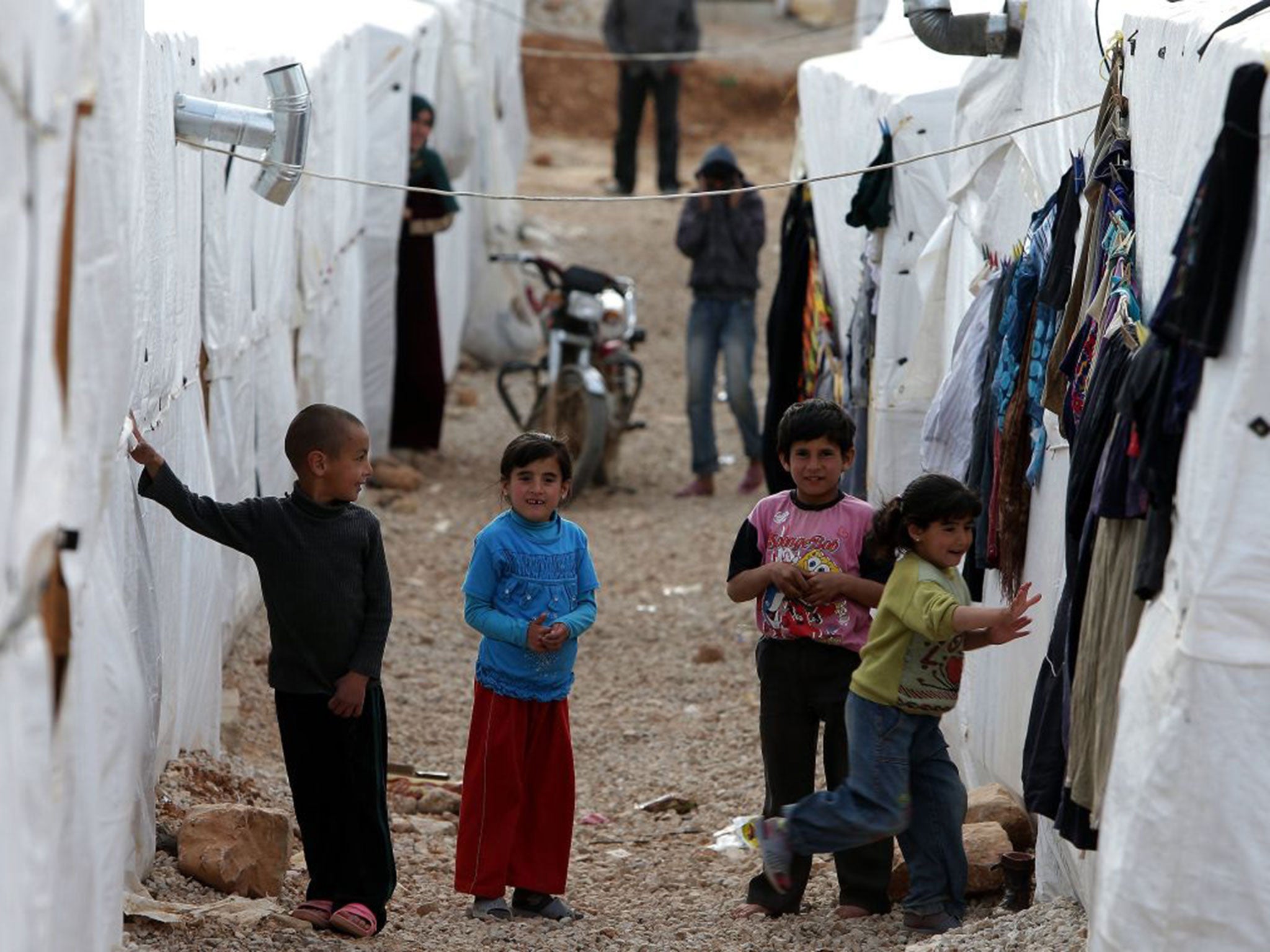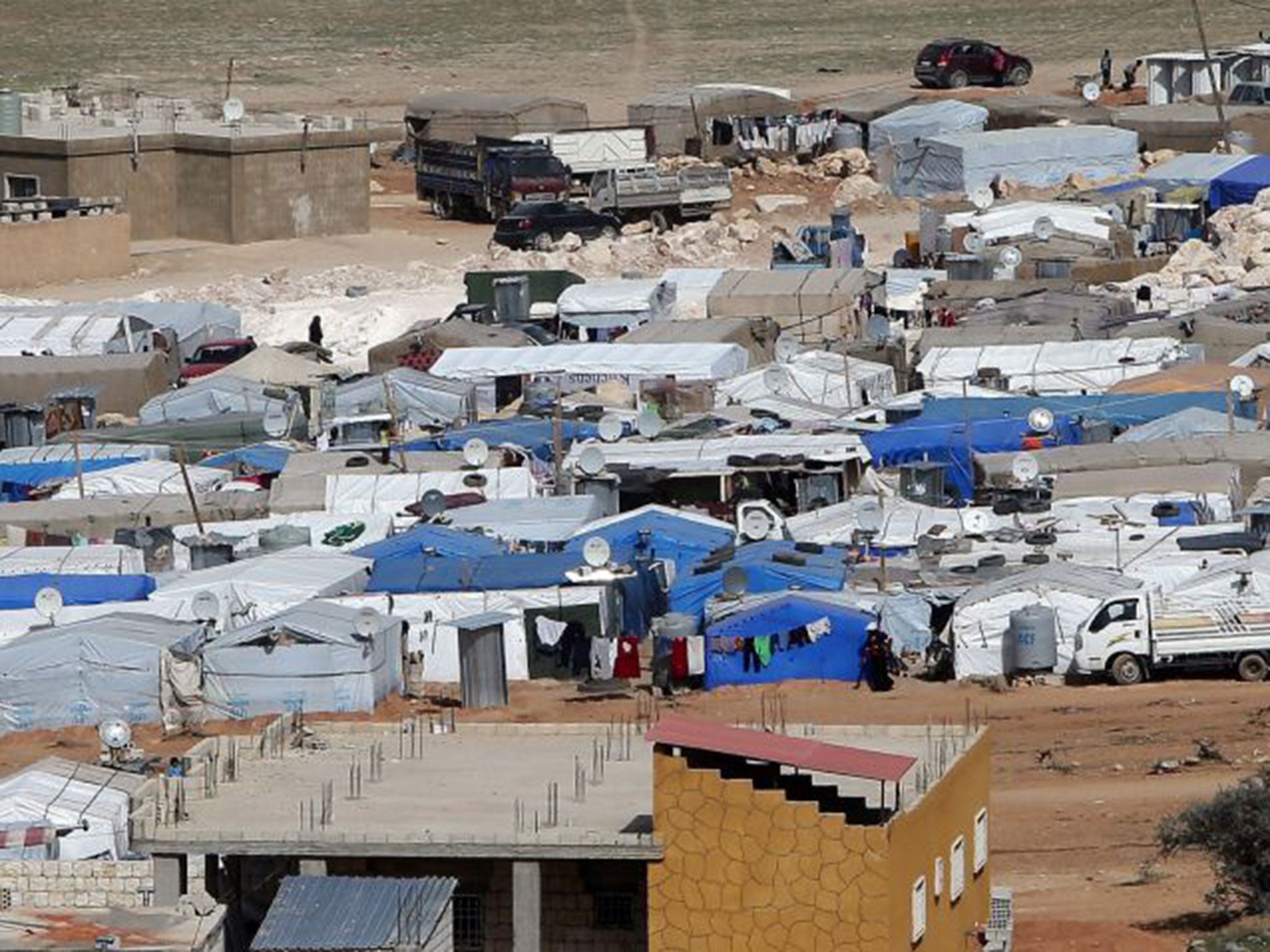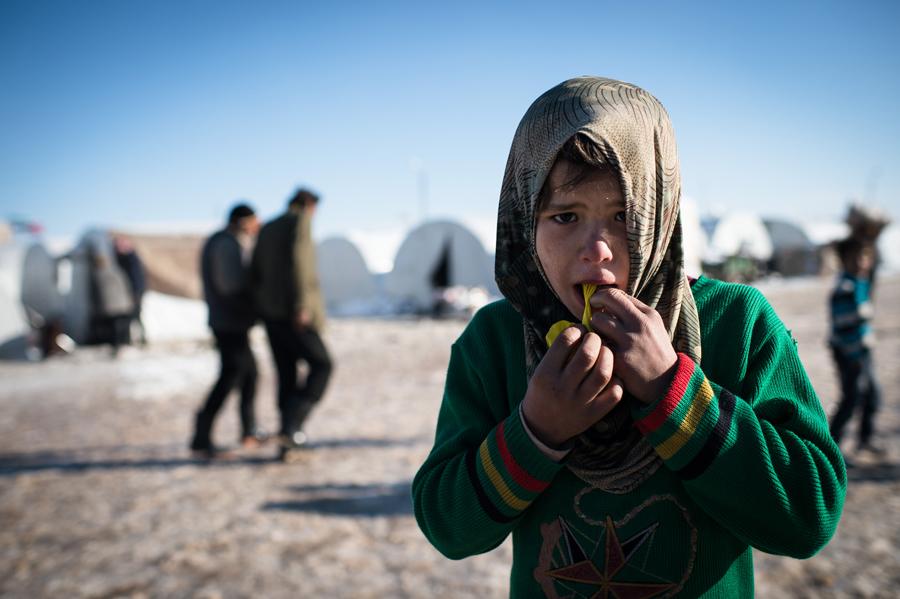Syria conflict: With the men away fighting, women take the mantle of community leaders in Lebanon's refugee camps
Forced to leave their homes in war-torn Syria, and with men away, women are taking on the mantle of community leaders

Sitting cross-legged in her makeshift tent, and due to go into labour any day now, Kharieh Fares is blunt about her role as the leader of a refugee camp in Lebanon’s Bekaa Valley.
“We women know what’s happening,” she says, having shouldered responsibility for the well-being of dozens who rely on her for basic necessities. “We know what is lacking in our homes.”
There are thousands of informal settlements like this one around the country and all of them have a shawish like Ms Fares. But, unlike here, it’s almost always a man’s job. “Yes, it is usually a man,” she says. “But none of them had a mobile phone.”
The Syrian civil war, which began in 2011, has now forced more than 3.7 million people to flee the country; a third are in Lebanon – with more than 400,000 refugees in the Bekaa Valley alone. Across the country and largely out of sight, thousands of women are taking up the mantle left behind by men who are fighting, have been killed or simply can’t find any work of their own. Out of necessity, the women have become leaders and protectors of their families, their communities and of other women.

More than a quarter of Syrian refugee households across the region in Lebanon, Jordan and Turkey are headed by single women.
Ms Fares, 33, is not planning to take any time off when the child she is carrying, her eighth, is born. The work she does is too important. It’s her duty to tell the assortment of NGOs and government organisations what the community needs, and to make sure that her camp, relatively tiny, isn’t overlooked when it comes to distribution. She never imagined herself in this position, having fled Aleppo, Syria’s largest city, in 2012, but it is one that she has adopted with ease.
Within 10 minutes, three people have knocked on her door to seek her help and she has to instruct one of the women who surround her to make sure that nobody else comes in.
“Women can feel other women’s needs,” she says. “The men simply leave in the morning. They do not face what we face. They do not have the endurance to tolerate what we do.”
She has little time for anyone who thinks her gender makes her ill-suited to be the shawish. “It is none of their business,” she says, with a wave of her hand.
In taking on new roles, women across Lebanon are subtly shifting the gender dynamics in communities that are largely rural and conservative.
“In every conflict situation, there is a disruption of gender roles,” says Dale Buscher, the senior director of the US-based Women’s Refugee Commission, who has worked with refugee communities around the world for 27 years. “Displacement creates new opportunities for a more gender-equitable society.”
However, it’s clearly a curate’s egg. For nobody would choose the life these women have to live. They have lost family and homes, and every day is a fight for survival on the barest minimum. There is no safety net. If they could go back to the security, stability and routine of their old lives, they would.

Then there is the familiar double burden: in going out to work, women simply become responsible for both paying the bills and taking care of the family.
“We have been forced to survive,” says Hanna Molaia, 35, a mother of four living in a camp not far from Ms Fares. Her husband died en route to Lebanon from the western Syrian city of Homs and it falls to her to look after their four children, one of whom is blind.
Along with other women in her camp, she got help from the aid agency Save the Children to learn new skills to help make money for her family. As a result, she has become fiercely independent, her friends say, refusing any help in setting up her own shop inside the camp. She makes just enough money to get by.
Four years into Syria’s civil war, and with no end in sight, it is almost impossible to see what a future Syria will look like, and what women’s place will be in it, especially with the rise of violent Islamism across the region. There is no real way of knowing how much of the gains these women have made will endure.

In some ways, the female refugees in Lebanon, Jordan and Turkey have been set back. Public spaces have become more dangerous. Without male protection, they are vulnerable to economic and sexual exploitation.
For Hind, who did not want her last name to be used, coming to Lebanon meant giving up much of her freedom. In Damascus, where she is from, living and working as an unmarried woman would barely raise an eyebrow. Here, she has faced death threats for continuing to teach.
Still, the 33-year-old says: “I am so proud of myself as a source of power.” She volunteers with the International Rescue Committee to help other young women – and particularly teenaged girls – to deal with the challenges they face. Largely as a result of her encouragement, around 70 per cent of the staff in the three local refugee schools are women.
She worries about the uncertainty of the future for the next generation, as they abandon education and become desperate for the security of marriage.
But the lives of the women she knows have been changed for ever by the experience of war, and, despite everything, in some ways for the better.
“The situation is bad, but the result is good,” she says. “The men in our lives are no longer the only decision-makers.”
Join our commenting forum
Join thought-provoking conversations, follow other Independent readers and see their replies
Comments